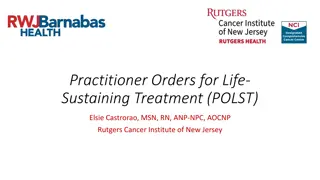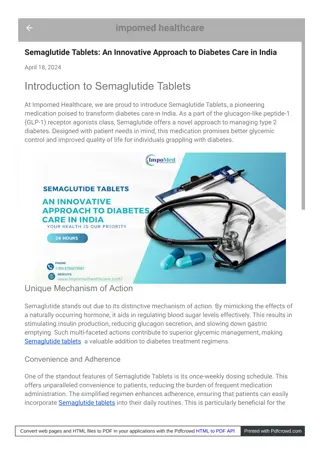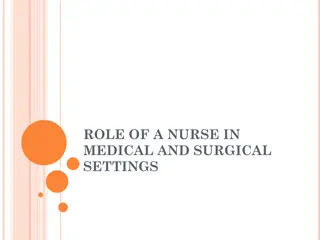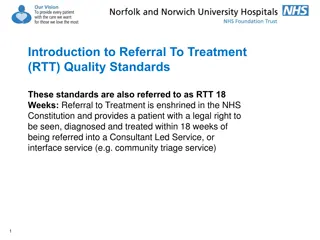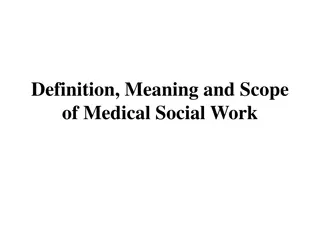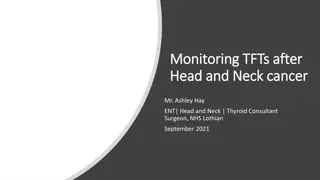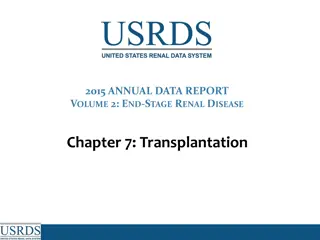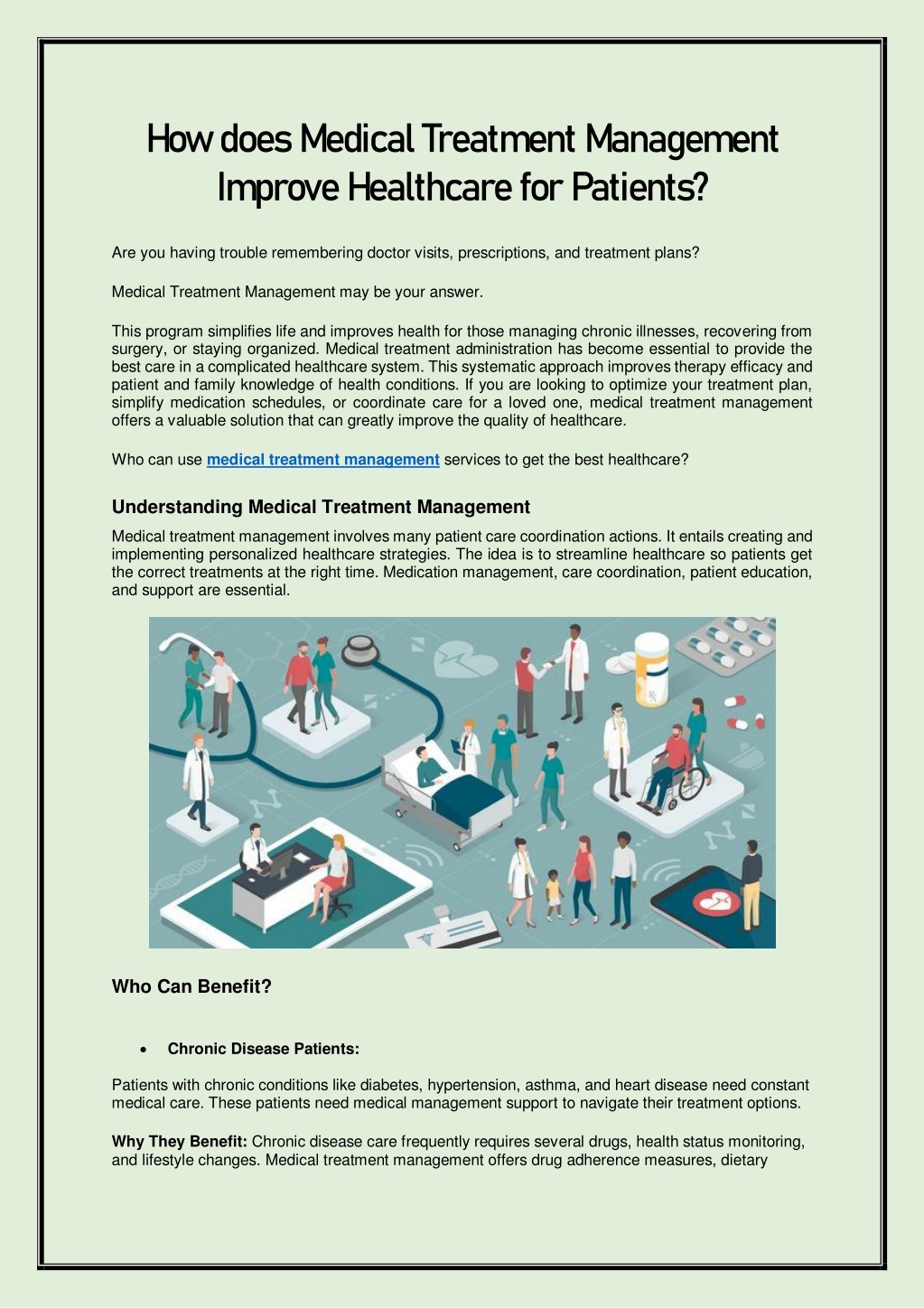
How does Medical Treatment Management Improve Healthcare for Patients
Maddadgar Foundation is dedicated to offering patient-centric Medical Treatment Management Services. We streamline the healthcare process by managing medical records, arranging appointments, and coordinating treatments. With a focus on patient satisf
Download Presentation

Please find below an Image/Link to download the presentation.
The content on the website is provided AS IS for your information and personal use only. It may not be sold, licensed, or shared on other websites without obtaining consent from the author. Download presentation by click this link. If you encounter any issues during the download, it is possible that the publisher has removed the file from their server.
E N D
Presentation Transcript
How does Medical Treatment Management Improve Healthcare for Patients? Are you having trouble remembering doctor visits, prescriptions, and treatment plans? Medical Treatment Managementmay be your answer. This program simplifies life and improves health for those managing chronic illnesses, recovering from surgery, or staying organized. Medical treatment administration has become essential to provide the best care in a complicated healthcare system. This systematic approach improves therapy efficacy and patient and family knowledge of health conditions. If you are looking to optimize your treatment plan, simplify medication schedules, or coordinate care for a loved one, medical treatment management offers a valuable solution that can greatly improve the quality of healthcare. Who can use medical treatment management services to get the best healthcare? Understanding Medical Treatment Management Medical treatment management involves many patient care coordination actions. It entails creating and implementing personalized healthcare strategies. The idea is to streamline healthcare so patients get the correct treatments at the right time. Medication management, care coordination, patient education, and support are essential. Who Can Benefit? Chronic Disease Patients: Patients with chronic conditions like diabetes, hypertension, asthma, and heart disease need constant medical care. These patients need medical management support to navigate their treatment options. Why They Benefit: Chronic disease care frequently requires several drugs, health status monitoring, and lifestyle changes. Medical treatment managementoffers drug adherence measures, dietary
advice, and monthly checkups. This holistic strategy treats symptoms and prevents hospitalizations. Elderly Patients: Elderly people often struggle with polypharmacy, cognitive impairment, and mobility. Medical and health services administration is essential for coordinated and successful patient care. Why They Benefit: Adverse drug interactions grow with age, and complex treatment regimens can be confusing. Simple drug schedules, reminders, and effective care provider communication about health status changes aid senior individuals. This holistic approach boosts independence and quality of life. Mental Health Conditions: Mental health is vital to general health, but therapy often involves multiple approaches. Depression, anxiety, and bipolar disorder patients benefit from medical therapeutic management. Why They Benefit: Coordinated care amongst psychiatrists, psychologists, primary care physicians, and social workers addresses all aspects of patient health. Medical management services help with medication management, therapy scheduling, and lifestyle changes, enhancing mental health treatment. This boosts patient engagement and outcomes. Post-Surgical Patients: Post-op patient surgery recovery is difficult and requires lengthy follow-up. Medical therapy management is crucial for healing. Why They Benefit: Post-surgery patients may need physical rehabilitation, pain treatment, and monthly checkups. Patient understanding and follow-up of post-operative care plans are coordinated by medical treatment management. This preventive strategy lowers complications and speeds healing. Individuals with Complex Health Needs Patients with multiple health concerns or specialized care benefit greatly from medical and health services management. Rare diseases, autoimmune disorders, and cancer patients may be included. Why They Benefit: Complex health issues require multiple doctors and treatments. Medical treatment management connects these professionals to ensure care meets patient goals. This integrated strategy can improve therapeutic efficacy and patient satisfaction.
Caregiver and Family: Caregivers and family members are crucial to medical treatment management. They help patients, especially elderly or chronically ill ones. Why They Benefit: Medical management support gives caregivers the tools and information they need to help their loved ones. This includes medication education, care plan awareness, and knowing when to seek help. Empowering caregivers improves patient support and health outcomes. Healthcare Systems and Providers: While patients are the priority, good medical treatment management benefits healthcare systems and providers. Why They Benefit: Healthcare providers can enhance patient flow, streamline processes, and decrease redundancies by using medical and health services management. This improves patient experience and resource use, improving healthcare companies' financial success. The Medical Treatment Management Process Coordinating Care: Medical treatment management relies on care coordination. This entails coordinating patient care and exchanging information with patients, families, and healthcare providers. Coordination prevents fragmented care and offers full patient assistance. Medication Management: Understanding and following drug regimens can be difficult for many individuals. Medical treatment management includes drug reconciliation, adherence monitoring, and side effects and interaction education. Chronic illness patients and the elderly benefit from this proactive approach.
Patient Education: Knowledge is powerful in healthcare. Medical treatment management includes patient education to help people make health decisions. This includes knowing their diseases, treatment alternatives, and lifestyle adjustments. Regular Checks and Followup: Monitoring and adjusting therapy effectiveness requires continuous monitoring. Regular follow-ups allow doctors to track progress and adjust treatment regimens. Chronically ill or surgical patients need this continuing support. How Medical Treatment Management Improves Healthcare Medical treatment management improves healthcare outcomes by delivering structured, coordinated, patient-specific care. Effective medical care management improves health in numerous ways: Care Coordination: Medical treatment management improves care coordination by providing good communication among all healthcare providers, reducing the danger of fragmented care. This creates a more comprehensive patient health plan. Medication Management: Management techniques can improve medication adherence by helping patients understand dosages, timing, and adverse effects. Adherence helps patients get the most out of their medicines, decreasing problems. Proactive monitoring and adjustments: Regular follow-ups and monitoring let doctors evaluate therapy efficacy. This proactive strategy allows prompt treatment plan revisions to meet the patient's changing health demands. Patient Education and Empowerment: Medical treatment management focuses on educating patients about their problems and treatment alternatives. Empowered patients engage more in their care, improving adherence and outcomes.
Regular Monitoring: Medical treatment managementcan considerably minimize hospital readmissions and emergency department visits by effectively managing chronic illnesses and ensuring prompt interventions. Whole-Health Approach: Medical care management addresses physical, mental, and emotional wellness for better health results. Conclusion In conclusion, medical treatment management is vital for chronic disease patients, the elderly, mental health patients, and caregivers. Medical management services improve health outcomes and patient satisfaction by coordinating care, managing medications, and providing continuing support. As healthcare evolves, medical and health services management will be essential to provide complete treatment to all patients. Understanding medical treatment management can improve health outcomes and empower patients, caregivers, and healthcare providers in various conditions such as Liver Replacement Surgery, Kidney Transplant, Organ transplant, Cardiac science, and many chronic diseases.


